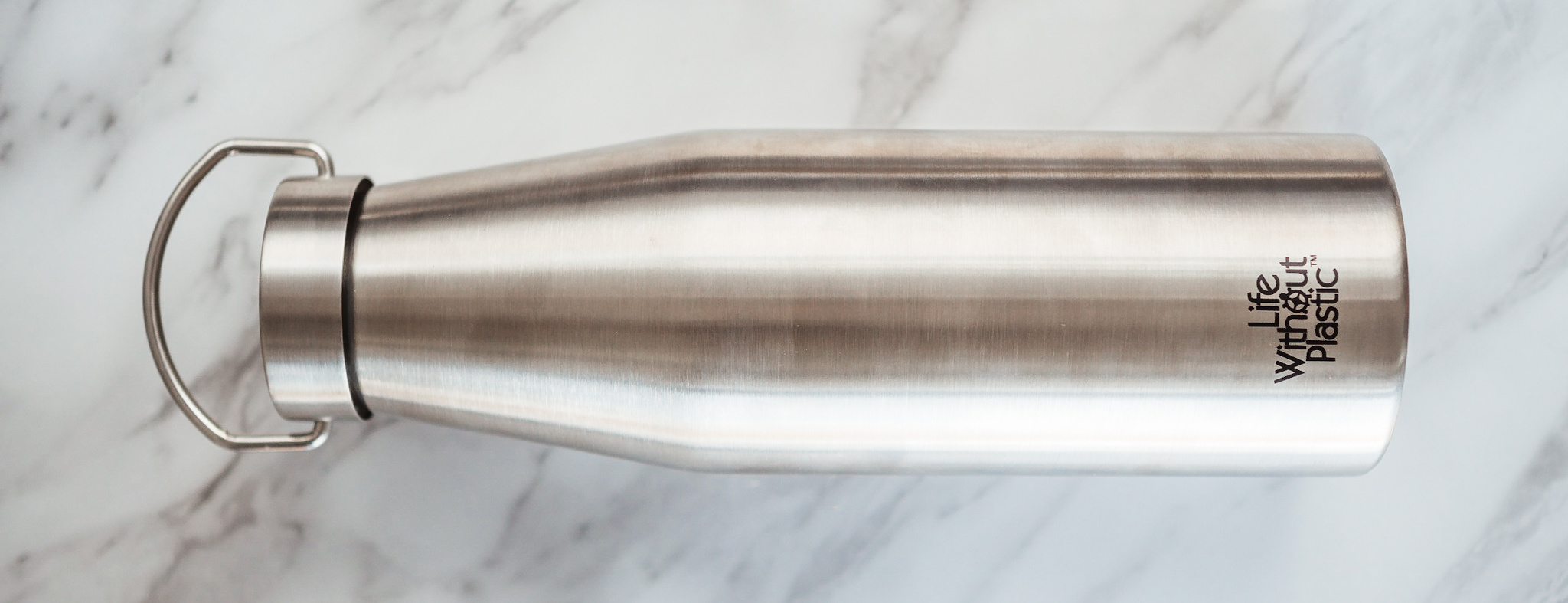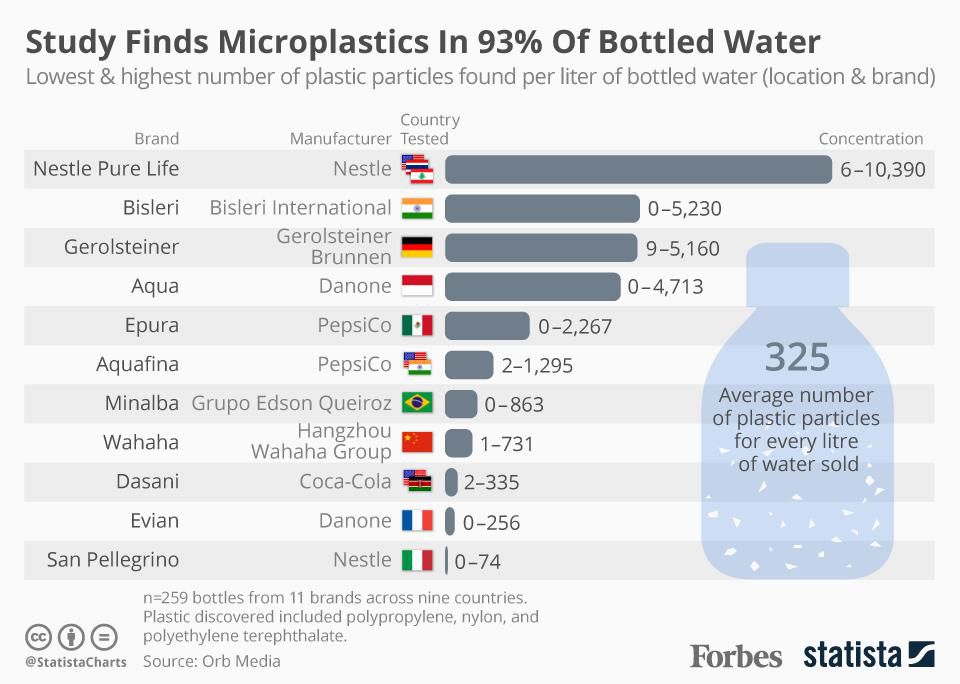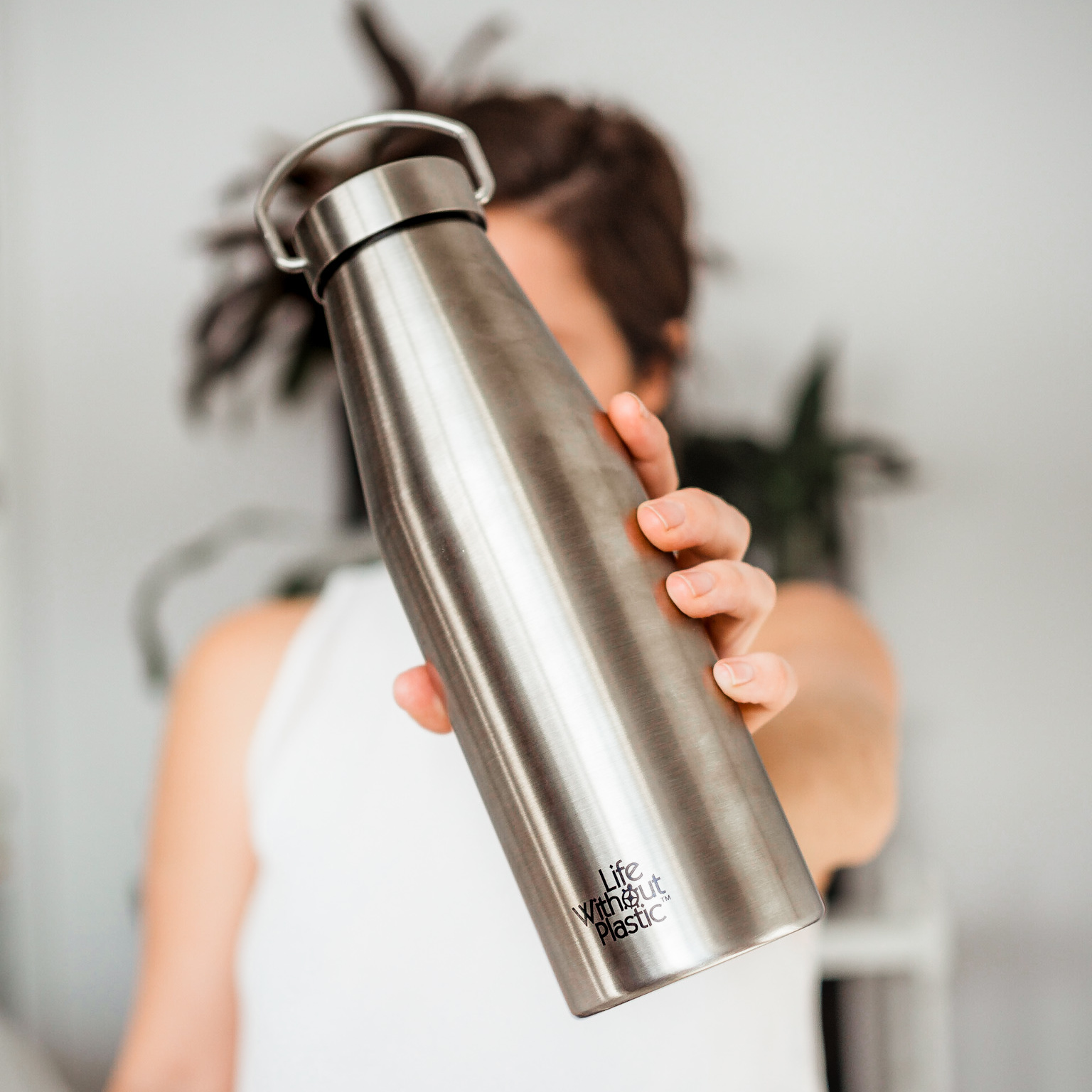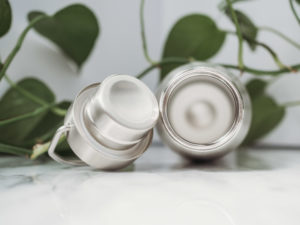Reusable bottles, the healthier option
Reusable bottles are a well known eco-friendly staple that help avoid waste, but did you know that they are also much safer for your health too?! Disposable plastic water bottles can actually leach hormone disrupting chemicals into the water we drink. Plus, they can impart microplastics that break off from the bottle and cap! A study titled “Synthetic Polymer Contamination in Bottled Water” tested 11 brands of bottled water, across 9 countries globally. They found that 93% of the 259 bottles contained signs of microplastics and that some of the contamination came from the bottle itself. The worst culprit was Nestle Pure Life, which contained 10,000 microplastic particles per liter!
If the plastic pieces are so small, why does it matter?
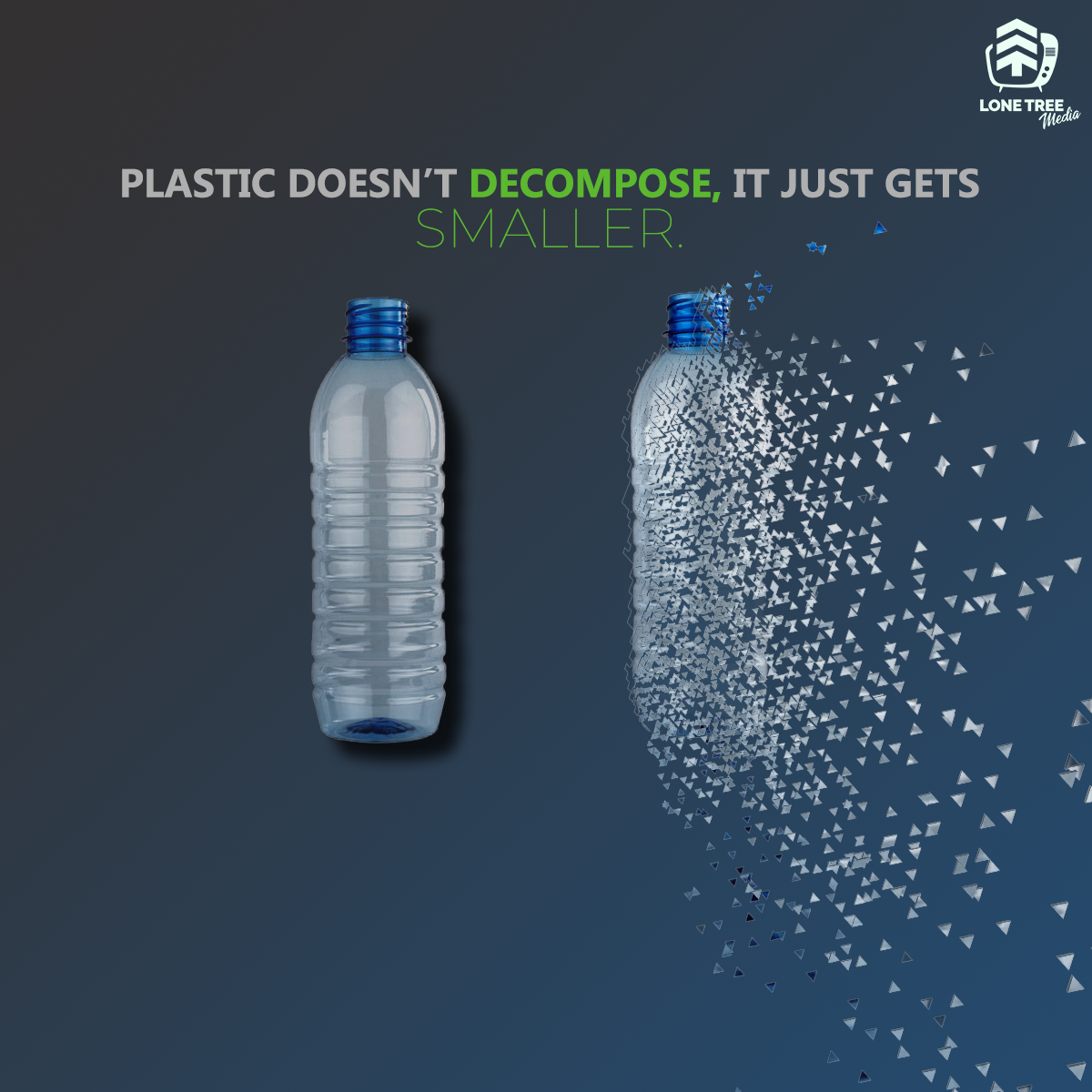
#1: They can be harmful to our health.
Disposable water bottles are made with polyethylene terephthalate (PET). Studies have found that over time and in varying degrees of heat, disposable plastic bottles can leach antimony trioxide, a possible carcinogen (i.e., cancer-causing agent). PET can also leach phthalates, synthetic plasticizers that are endocrine disruptors. They can lead to other health effects like “asthma, neurodevelopmental problems in newborns, fertility issues, liver damage, obesity, and possibly breast cancer” — and even in small amounts, as noted and backed up with research in our book “Life Without Plastic, The Practical Step-by-Step Guide to Avoiding Plastic to Keep Your Family and the Planet Healthy“. Although the volume of microplastic particles from one bottle may seem small, we prefer to take a precautionary approach and avoid plastic.
#2: They are harmful to wildlife and our whole global environment.
Once a plastic bottle enters the ocean, it can take up to 450 years to break down. During that time, it pollutes habitats and endangers wildlife. In a landfill where there is no sun or oxygen to help the process, it may take up to 1000 years. Ultimately, breaking down is not a good thing for plastic because it does not biodegrade, it just degrades. This means it separates into increasingly smaller pieces ” down to particles in nanometer scale — one-one thousandth of one-one thousandth of a millimeter” according to Chris Tyree and Dan Morrison from Orb Media. Microplastics additionally have been found to “absorb toxic chemicals linked to cancer and other illnesses, and then release them when consumed by fish and mammals.” These chemicals can bioaccumulate right up the food chain to us humans.
The solution – A reusable bottle
Owning a reusable bottle and keeping it handy can make all the difference. Save all that waste and keep yourself and your family safe by avoiding cheap plastic (even if it says it’s BPA-free) and opting for a durable reusable alternative made of high quality stainless steel, glass, or ceramic.
If you’re looking for a recommendation, we are thrilled to announce the launch of our brand new reusable bottle! Since we started in 2006 we have wanted to bring in our own bottle. We took our time to create one that stands apart from the rest and we are absolutely obsessed with it!
- Plastic-free! Stainless interior and exterior.
- High quality and rust-proof stainless steel.
- Double wall insulated to maintain temperatures.
- Has a carrying loop for easy transportation.
- Durable and built to last.
- Doesn’t absorb or impart flavors or scents.
The most important feature that makes it unlike most other bottles is that it is completely plastic-free! The interior and exterior of the bottle and the cap are 100% stainless steel! To be airtight, there is a small silicone ring inside the cap but this is made of high quality food-grade silicone, and has minimal contact with your drink. Most reusable bottles and mugs have plastic lids that are tricky to clean well. Not this one!
One bottle CAN make a difference!
It can be hard to imagine how one person using a reusable bottle can make a dent in fixing the wicked problem that is plastic pollution. We are here to cheer you on and assure you that your efforts count and together we are making real headway!
It all starts with a small step. For myself, it was in 2015 when I decided to quit disposable cups. I started with this one swap and stuck with it, giving myself leeway with other disposables but avoiding cups & bottles at all costs. I quickly developed a new habit of bringing my bottle with me everywhere and it even became a friendly companion. Since then, I’ve adopted many other plastic-free habits, but it started with this one, the reusable bottle. This single reusable bottle helped avoid 2-3 bottles or cups per week, over five years, totalling 500-750 cups saved! And there are so many of us doing our part, each contributing to serious reductions in the demand for plastic!
As Margaret Mead said “Never doubt that a small group of thoughtful, committed, citizens can change the world. Indeed, it is the only thing that ever has.”
Author: Sarah W

